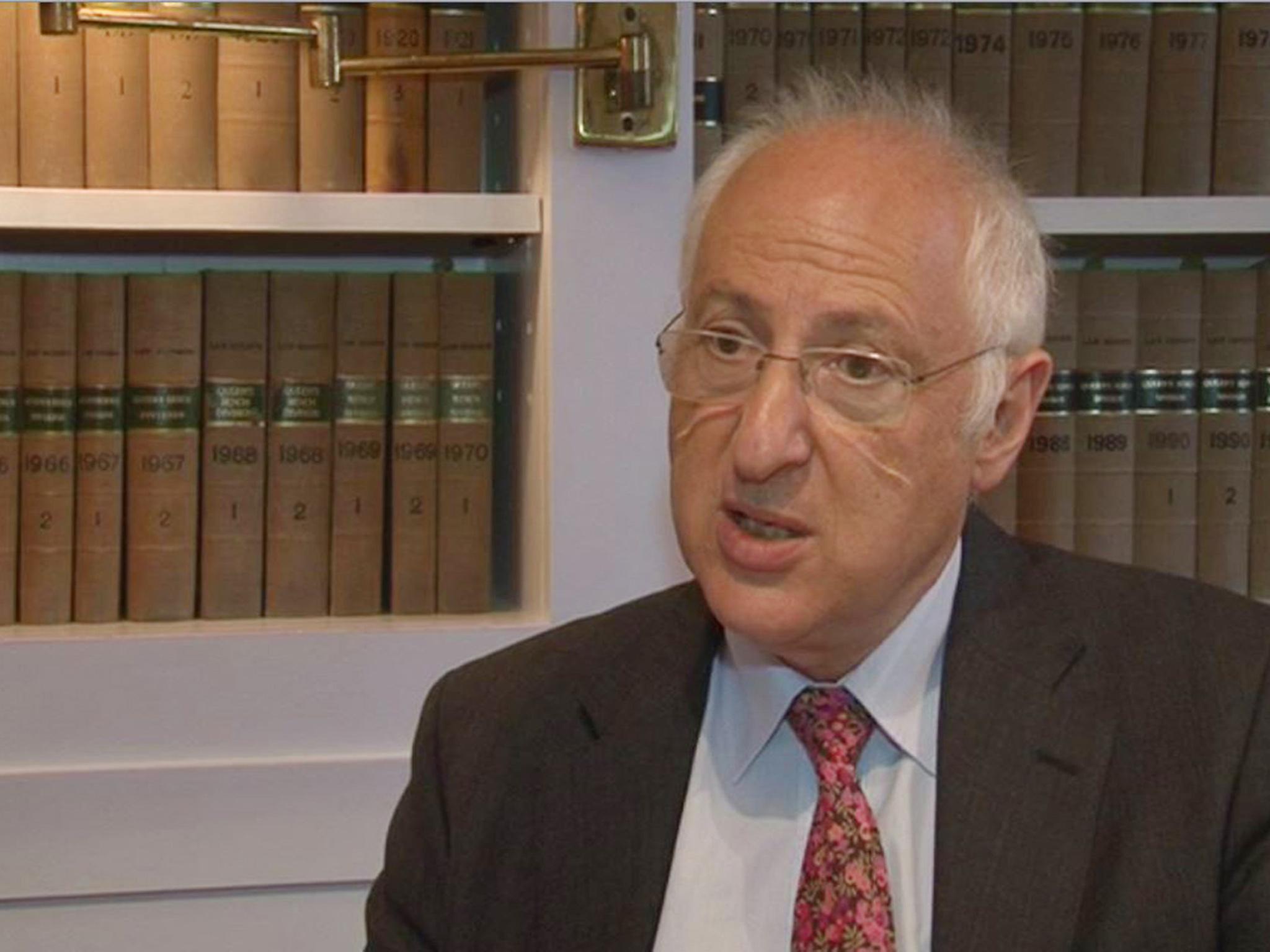Review of counter-extremism scheme boycotted over chair’s ‘Islamophobic’ comments
Human rights group launch ‘parallel review’ of Prevent programme

Your support helps us to tell the story
From reproductive rights to climate change to Big Tech, The Independent is on the ground when the story is developing. Whether it's investigating the financials of Elon Musk's pro-Trump PAC or producing our latest documentary, 'The A Word', which shines a light on the American women fighting for reproductive rights, we know how important it is to parse out the facts from the messaging.
At such a critical moment in US history, we need reporters on the ground. Your donation allows us to keep sending journalists to speak to both sides of the story.
The Independent is trusted by Americans across the entire political spectrum. And unlike many other quality news outlets, we choose not to lock Americans out of our reporting and analysis with paywalls. We believe quality journalism should be available to everyone, paid for by those who can afford it.
Your support makes all the difference.Human rights organisations have boycotted a review of the government’s flagship counter-extremism scheme after its leader was accused of Islamophobia.
Charities including Amnesty International and Liberty said the appointment of Wiliam Shawcross, former chair of the Charity Commission, as the independent reviewer of Prevent had undermined its credibility.
A joint statement accused Mr Shawcross of expressing “patently Islamophobic views” in the past, including saying: “Europe and Islam is one of the greatest, most terrifying problems of our future.”
The 17 groups, which also include Big Brother Watch, Rights and Security International and The Runnymede Trust, said they would be launching their own “parallel review”.
“It is apparent that the government intends to use this review to whitewash the strategy and give it a clean bill of health, without interrogating, in good faith, its impacts on human rights and fundamental freedoms,” the statement added.
“Without these perspectives, it is impossible to impartially assess the Prevent policy.”
Ministers announced an independent review of Prevent two years ago, but it has been beset by controversy and delays.
The first reviewer appointed, Lord Carlile, stepped down in December 2019 amid legal action over alleged bias and the review’s terms of reference.
When Mr Shawcross was appointed as his replacement in January, critics raised concern about some of his previous remarks and allegations of bias against Muslim groups during his tenure at the Charity Commission.
Human rights organisations pointed to an appearance at the 2012 World Affairs Council, in Texas, where during a conversation about terror plots, Mr Shawcross said: “Europe and Islam is one of the greatest, most terrifying problems of our future, I think.
“All European countries have vastly, very quickly growing Islamic populations and frighteningly large numbers of the young men in these, both in Britain and in Germany and in France, are turning to radical Islamism.”
Mr Shawcross was reported by the Telegraph to be a “frontrunner” for the role of Prevent reviewer a week before some other candidates were interviewed in November.

Nazir Afzal, a former chief crown prosecutor who was among the other candidates, said the article’s timing did not “suggest a fair fight”.
The group of charities said the choice of reviewer suggested that the government “has no interest in conducting an objective and impartial review of the strategy, nor in engaging meaningfully with communities affected by it”.
“Mr Shawcross’s appointment, given his well-known record and previous statements on Islam, and following the debacle of the Lord Carlile appointment, brings into question the good faith of the government in establishing the review and fundamentally undermines its credibility,” they added.
The statement said the parallel review would look at alleged discrimination and human rights violations under the Prevent strategy, which aims to stop people being drawn into terrorism.
Some campaign groups have long accused Prevent of targeting Muslims and setting the barrier for intervention too low, although police say statistics prove that all demographics and ideologies are considered.
David Cameron introduced legal requirements for institutions including schools, the NHS and councils to report suspected extremists to Prevent four years ago, sparking fresh accusations of state-sanctioned spying.
The government later refused calls for change from the Home Affairs Committee, Independent Reviewer of Terrorism Legislation, Joint Committee on Human Rights, MPs and charities.
Participation in both the Prevent and Channel programmes is voluntary, and some officials have questioned whether the process should be obligatory after several people referred went on to attempt terror attacks.
A Home Office spokesperson said: “There was a full and open recruitment process to find the new Independent Reviewer of Prevent.
“A panel, led by an independent chair, assessed the candidates and found that Mr Shawcross met the criteria and possessed the right range of skills and experience to conduct this important review.
“It is false and disingenuous to say that Prevent disproportionately targets Muslims. It plays an essential role in stopping vulnerable people being drawn into all forms of terrorism, with safeguarding at its heart. It is important that this review is conducted so this vital programme continues to improve.”
Out of 6,287 referrals to Prevent in the year to March 2020, more than half were for individuals with a mixed, unstable or unclear ideology.
Around a quarter of referrals were due to concerns over Islamist radicalisation and 22 per cent related to right-wing radicalisation.
The largest age group was children and young people aged 20 and under, including 1,559 children under the age of 15.
Of those referred to Prevent, 27 per cent “required no further action” and half were passed on to other services, such as education, housing and mental health, for alternative support.
A further 23 per cent were considered by the Channel counter-radicalisation scheme, which sees people paired with “intervention providers”.


